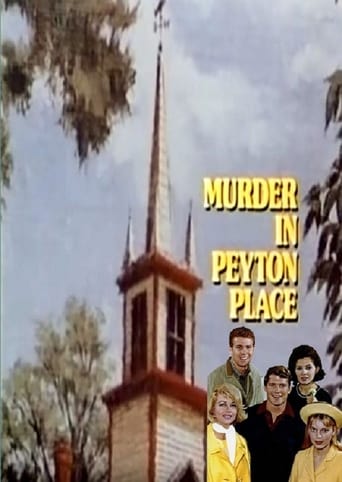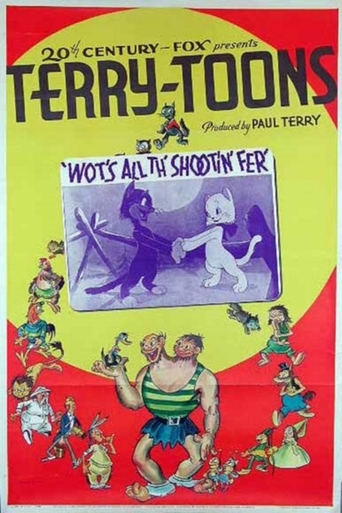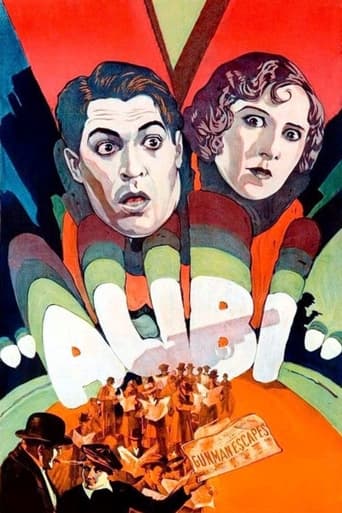


Alibi
Chick Williams, a prohibition gangster, rejoins his mob soon after being released from prison. When a policeman is murdered during a robbery, he falls under suspicion. The gangster took Joan, a policeman's daughter, to the theater, sneaked out during the intermission to commit the crime, then used her to support his alibi. The detective squad employs its most sophisticated and barbaric techniques, including planting an undercover agent in the gang, to bring him to justice.
-
- Cast:
- Chester Morris , Harry Stubbs , Mae Busch , Regis Toomey , Purnell Pratt , Al Hill , James Bradbury Jr.


Similar titles
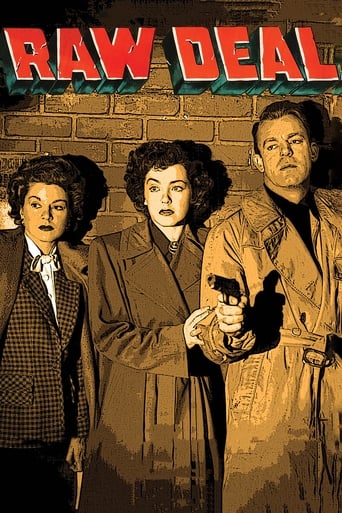
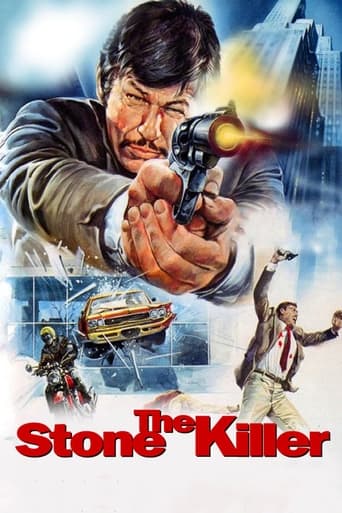
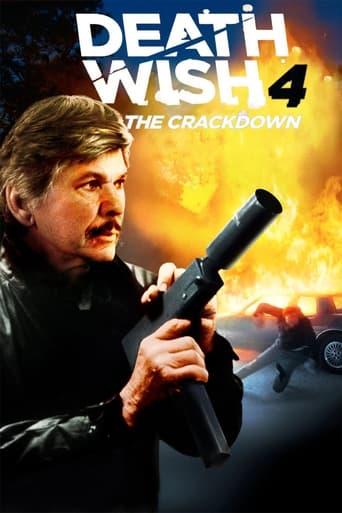
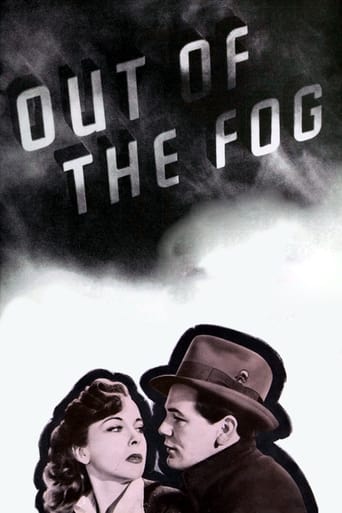
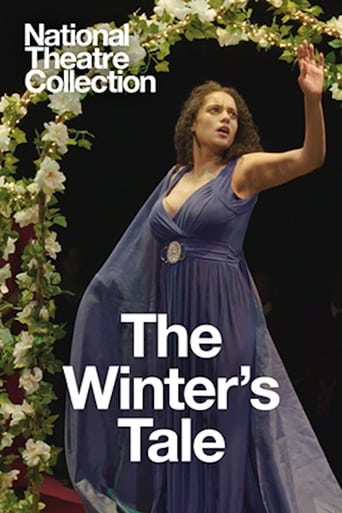
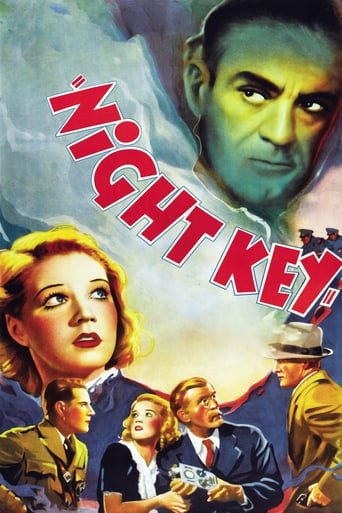
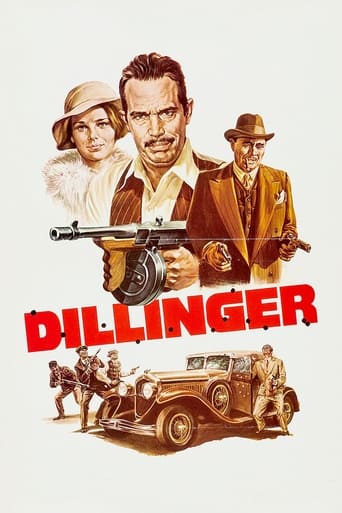
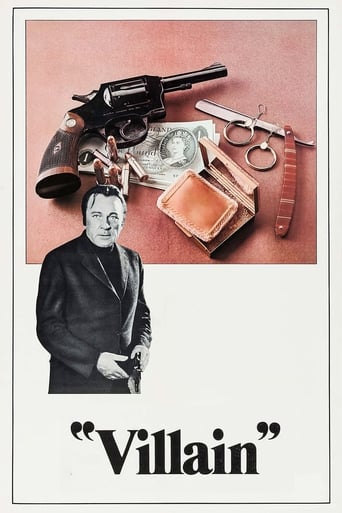
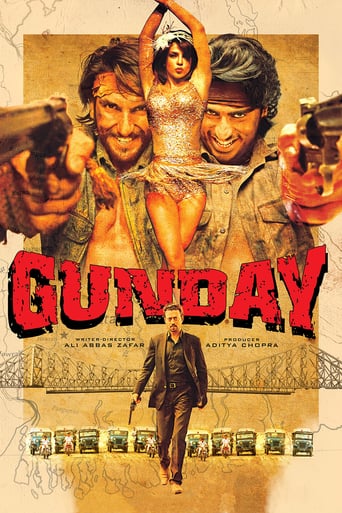
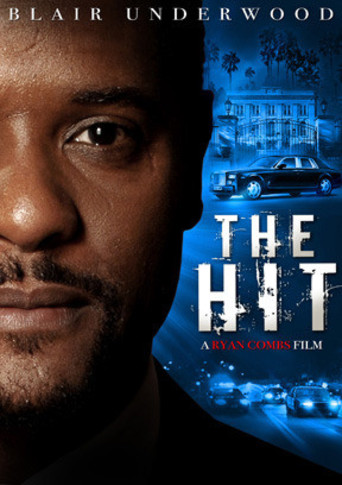
Reviews
A film with more than the usual spoiler issues. Talking about it in any detail feels akin to handing you a gift-wrapped present and saying, "I hope you like it -- It's a thriller about a diabolical secret experiment."
Ok... Let's be honest. It cannot be the best movie but is quite enjoyable. The movie has the potential to develop a great plot for future movies
The film's masterful storytelling did its job. The message was clear. No need to overdo.
It is neither dumb nor smart enough to be fun, and spends way too much time with its boring human characters.
1929 was a beginning for talking picture entertainment. A few of the motion pictures made in 1929 were really good, i.e., The Broadway Melody (1929). This one, even though it has a couple of good moments, is terrible and nearly unwatchable. The reason for this is the direction and the limitless periods of silly time between lines and scenes. You find yourself talking to the characters and asking, well, OK, what?, as they stare at each other waiting to deliver the next line. Chester Morris, Eleanor Griffith, and Mae Busch of Laurel and Hardy fame are fine in their own right. The 1929 music is just fine too. But, I couldn't finish watching the film because of Roland West's absolutely silly direction and lack of skill in the medium. This one is a loser. So was Roland West.
This movie is worth watching for the camera work, the set design, and some great scenes, but it's very uneven in just about every aspect. The scenes in the cop's apartment are probably the worst. They just die from bad sound, cheap set, bad dialog, bad lighting, and stilted acting. (As someone else commented, it seems that acting with sound was still being worked out, and these same actors did much better work later.) The scenes in the night club tend to be much more interesting. I love the art deco sets by William Cameron Menzies and the chorus girl dance routines and '20s jazz music. The camera is much more mobile in these scenes, since it isn't focused on dialog. The story flirts with equating the police and thieves as brutal figures outside the law, but it ends up in much more conventional territory, with Chester Morris prefiguring those early Bogart roles of the tough gangster who turns yellow.There are several sequences -- including the robbery and a later zooming car ride to the scene of the robbery with a camera attached to the front of the car -- that seem to be taken from Fritz Lang, particularly the first Dr. Mabuse serial. They are very well done. The opening prison sequence is very good, as is a later rooftop chase and the final gorgeous artificially-moonlit shot. One of the more interesting sidelights is the violent relationship between one of the gang members and his moll. They're clearly going to love each other to death.So very much a mixed bag. I've watched it three times, but I hadn't realized until now that it was nominated for Best Picture, Best Actor, and Best Art Direction. It definitely deserved the latter, but I'm not sure about the first two. HALLELUJAH! was probably more deserving of a Best Picture nomination, of other 1929 movies I've seen. Still, West is an interesting figure for a number of reasons, clearly influenced by the Germans. I like his silent movie, THE BAT, better than this one, but since I've watched ALIBI three times, it's obviously got something going for it.
It's hard to watch this film out of the context of 1929 when it was first released. The Idea of a talking moving picture was still a novelty. In fact this film was released simultaneously with a silent version for those theaters that had yet to convert to sound. That said the biggest problem with this film is that it doesn't seem to know which side of the law it wants to side with, first it makes the cops out to be, I don't want to say bad guys, so let's just say unlikable. Then towards the end it's creates the criminal as well lets also say unlikeable. The problem is that it has one of the worst transitions I've ever seen. Again one has to go back to the time in which the film was made, this at the height of Al Capone and the bootlegging racketeering of that period and just before the stock market was to crash in October. Today many people see the police forces in a dualistic light, as being both there to serve and protect, and as villains with a corrupt politicized agenda. With this the film should hold up, but it doesn't. The main problem is that the characters are so flat and unlikable. It's hard to care one iota about who lives and who dies. In the end it's a film about jerks, plain and simple. I doubt however that when the film was released the audiences of the day had this same feeling. The idea of beating or threatening a criminal suspect was most likely looked at as not only acceptable but necessary. It's hard to come down on the film one way or the other, as I have mixed feelings about it as a whole. With that said the ending is one of the most anticlimactic endings I've seen since Chinatown. In that film, the whole concept of the movie was based around this idea of the inevitable of the outcome. Alibi fails in that it doesn't seem to hold on to any one concept for too long, instead making leaps that just feel awkward and clumsy. I think that what most likely amazed the audience was the fact that Alibi is one of the first films to start to play around with the sound design, having a moving camera and dancing and sound all working simultaneously creating a spectacle that most film goes of the day had never seen before. I can't say stay away from this film as it has it's place in the pantheon of cinema history, in part because it was nominated for Best Picture at the academy awards. However, if you're just looking for a classic film to watch on a Saturday night, you might want to steer clear of this one.
I know it is de rigor to inform readers if a comment contains spoilers but I want to issue an even sterner warning that this comment will treat the plot of ALIBI (1929) as mere fodder to be referred to in passing regardless of the consequences for those who haven't seen the film and who might want to maintain some sort of "suspense". For me the most interesting aspect of ALIBI is the fact that at this point (1929) the film industries of the US, Britain, Germany and France were equally capable of producing this type of film. The urban crime drama may have been pioneered by the French feuillade whose roots go back to written literature but it was perfected by Lang and the German School. Film Expressionism cried out for the geometrical shapes and dark shadows of the urban setting and the speed of what was just becoming known as 'modern life'. After all it was only in 1920 that 50% of the American population lived in cities even though the Jeffersonian ideal of the rural ideal was to linger in both film and literature until WW2.While expressionist lighting was used to tell the quintessential urban tale, the gangster story, in Germany, it was imitated around the world. The most adept imitator was Alfred Hitchcock, a one time art director who made his first film in Germany. It is important when discussing ALIBI to compare it to Hitchcock's contemporary effort BLACKMAIL, which was also shot in silent and sound versions. In fact ALIBI comes off as being vastly inferior. This is because ALIBI's auteur, Roland West is merely artistic while Hitchcock is an Artist.The disparity is most evident in the talking portions of ALIBI. There are problems with the sound which look like a compendium of SINGING IN THE RAIN gags. Sound levels vary and people are grouped, presumably to be in close proximity to the microphones. There is even a song in which the vocalist is seen badly lip synching to what, in the days before mechanical playback, must have been the actual singer off-camera. Hitchcock had a similar problem in that his female lead had a heavy Slavic accent and had to lip sync her entire role, which he pulled off far more effectively.The overwhelmingly biggest problem in the talking portions of ALIBI is the acting. Screen acting in talking films just hadn't been done and in this film everyone seems to be counting to three before talking. Its very off putting. Regis Toomy plays an undercover cop pretending to be a drunken stock broker referred to as "The Boy Wonder". He plays it like a grinning idiot with a silly broad smile on his face which seems to have been carved on in imitation of THE MAN WHO LAUGHED. No thought to the idea that he might appear sober and progressively get drunker and drunker, he's just a full time fool who couldn't have put over his act to a room full of ten year olds. Chester Morris, who was actually nominated for an Oscar for his performance, changes his demeanor as the role, NOT the character, demands. Released from prison, after a very effective silent montage, he assumes the leadership of a gang on no authority at all. His showy scene at the end where he becomes a blubbering coward reeks more of propaganda than drama. Re: All gangsters are yellow. When the undercover cop is discovered he is murdered somewhat inexplicably as knowing they were discovered the gang would have been better advised to get the hell out and not square accounts which would inevitably lead to the electric chair. However the necessities of propaganda required the villains kick the dog to confirm their sinister evil. Toomy has a super hammy drawn out death scene in which he actually wonders out loud why its getting dark. The academy might have thought this scenery eating was just the ticket in talking screen acting but apparently the public hated it and actors had to adapt to the new medium or else new actors untainted by the conventions of the stage brought in. Again, Hitchcock's characters are human beings, dualistic and inconsistent, their reactions ambiguous even to themselves. In ALIBI characters are set in stone and lack even free will. They act at the behest of a rigid morality tale whose points are hammered home. The police acquire information by literally pointing a gun at a suspects head not because they are tarred with the same brutal brush as the gangsters but to point out that this is the only way to treat 'them".The settings are over the top as well. Early geometrical deco, adapted from cubist designs and the neo-Mayan decorations of Frank Lloyd Wright (the curvilinear 'streamlined" deco was to come later) overwhelm the backgrounds. The silent scenes are very well shot. West knows the dramatic power of the dynamically unbalanced frame. Some shots use Caligari like angles and black and white shadows. There is a high shot of a car coming around a corner and stopping (done twice) which looks like it could have been lifted entire from Lang. (Also pointing out that as well as their film industries, automobile design hadn't yet diverged either.) Crowds pass by nighttime city streets as in Murnau. There are successful attempts at process shots and less successful attempts to use sound 'creatively'. Again, West's attempts pale beside Hitchcock's famous 'knife' sequence.As can be found in Roland West's IMDb biography, when he died he reputedly made a deathbed confession to Chester Morris that he murdered his mistress, Thelma Todd, whose death ended his Hollywood career. Morris and Todd co-starred in West' last film, CORSAIR (1931), another gangster melodrama. Apparently, unlike Hitchcock or Lang, West became involved in the gangster milieu rather than the cinematic arts.

